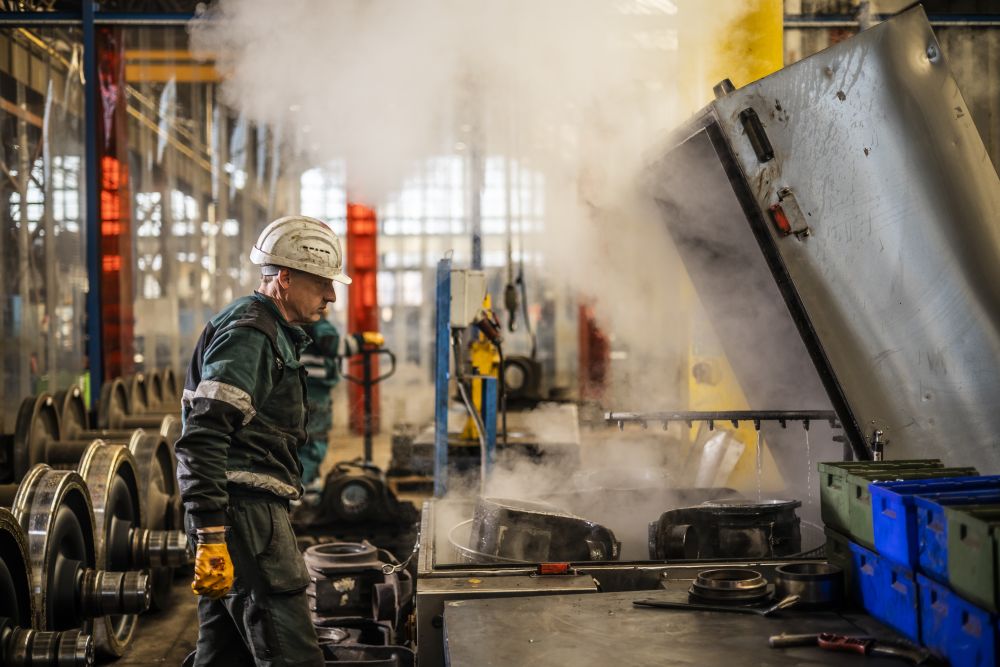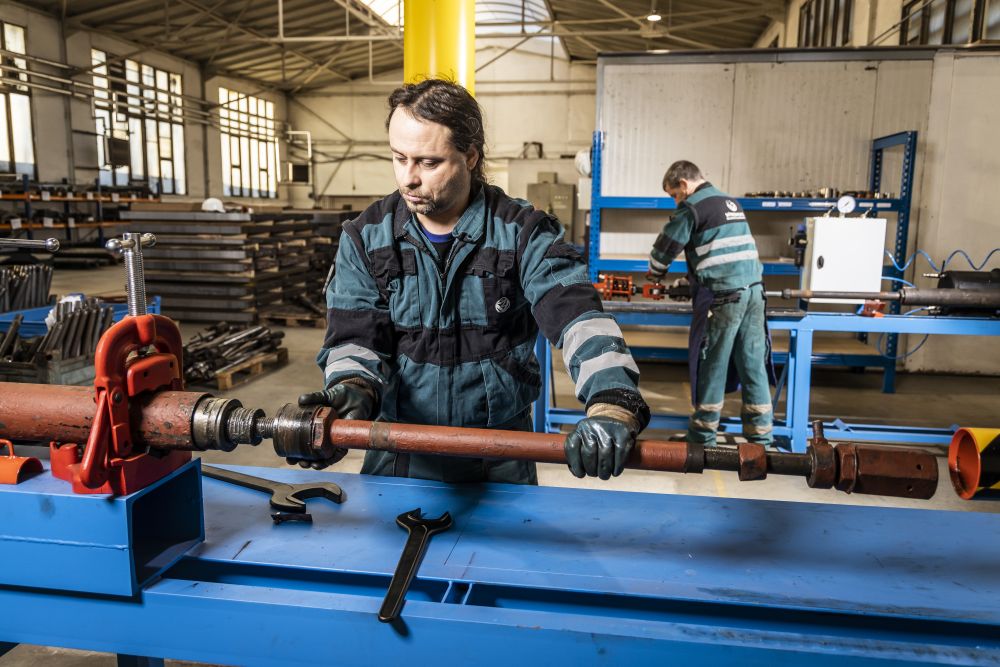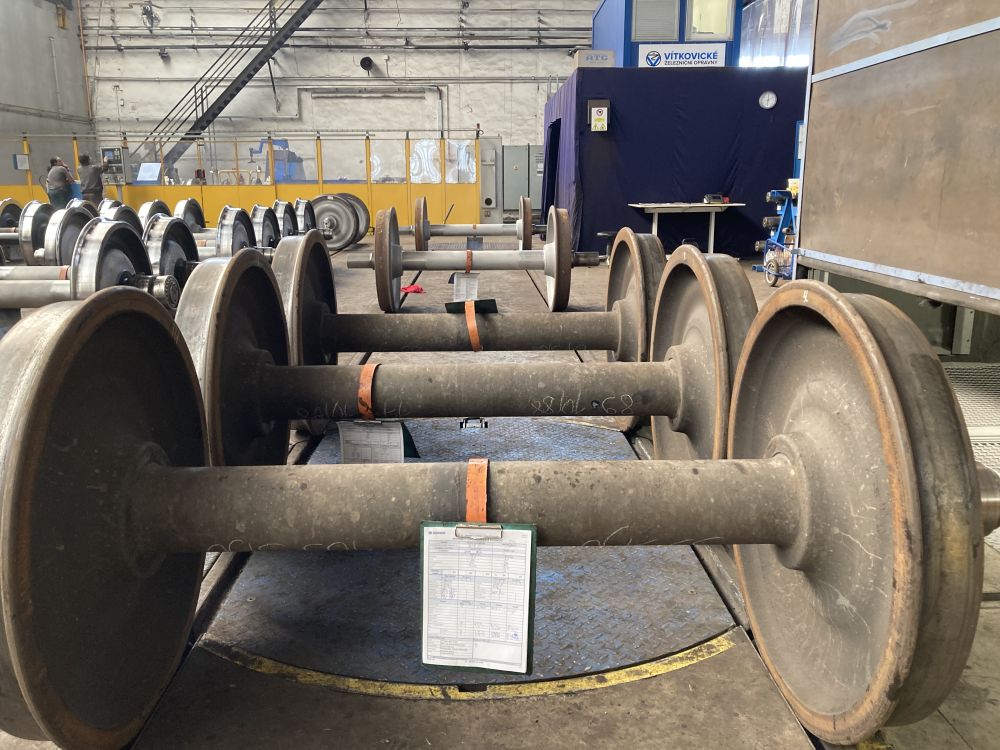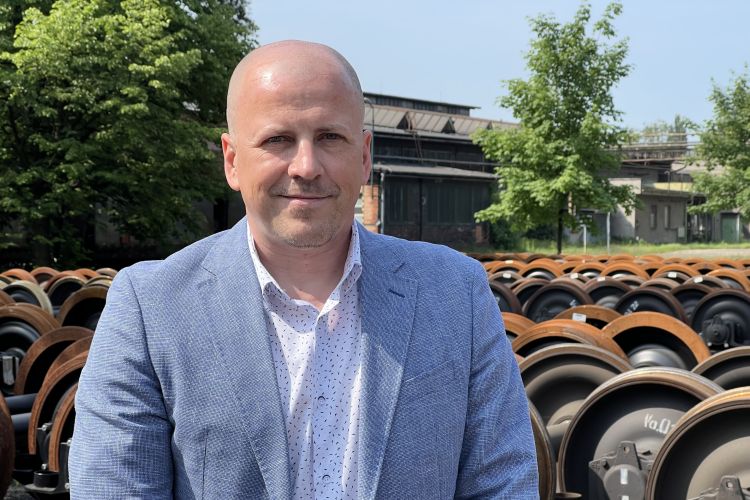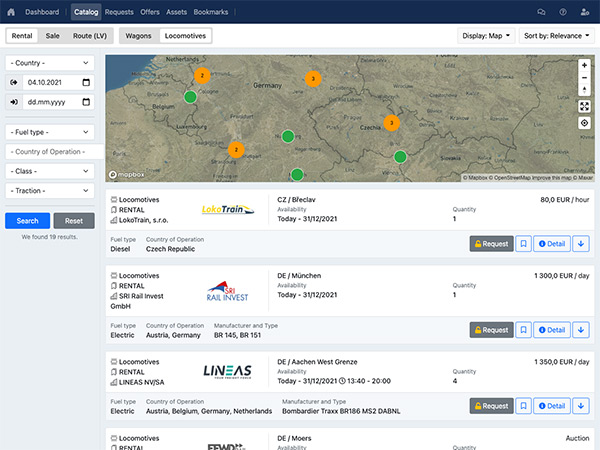RM: Mr Toman, since 2018 you have been steadily increasing the number of wagon repairs, last year you reached almost a thousand repairs. How many wagons are you planning to repair this year?
Richard Toman: So, last year we repaired 914 wagons, this year we want to get beyond 1,000 wagons. It is more complicated because of the fact that we can spend 50 hours on some wagons, whilst on others we may spend 300 hours. Therefore, it always depends on the difficulty and subsequently, the total number of wagons depends on that, as well. Thus, we have a second measure, which is so-called standard hours, that we can track the standard hours with.
RM: Do you specialise in repairing certain types of wagons, such as tank wagons, coal wagons or grain wagons?
Richard Toman: We are trying to broaden our portfolio. In 2018, my colleagues started with about 33 employees when doing two types of wagons - Falls wagons and E wagons. These are basically coal wagons and Shell wagons. Today, we have been doing about 10-15 types of wagons, including sub-types and so on. As a result, we are expanding our portfolio more and more every year.
RM: You have a stationary workshop and a mobile division. How much of your work takes place in the depot and how much work is done on the railways?
Richard Toman: I certainly would not differentiate it in terms of the number of units. If we measure it in terms of the revenue, we can say that 5 % of our revenue is in mobile repairs and 95 % is in the stationary workshop.
RM: Currently, you have one stationary workshop in the region, are you planning to build another workshop, maybe somewhere else, since 95 % of your orders takes place in stationary repairs?
Richard Toman: There is quite a lot of repair work here in the region, so the capacity of the current workshop is full. We can say that it is 100 % full with our long-standing customers. So, in order to attract new customers and move elsewhere, we are planning to expand towards the Czech-German border, the Balkans and, let‘s say, east of Ostrava, i.e. somewhere on the Slovakian-Ukrainian border.
RM: Now we have talked about the stationery station. However, what are your plans for the mobile division? You have three mobile stations, two in the Czech Republic and one in the south of Slovakia. Are you planning more stations in these countries or elsewhere? Poland, for example?
Richard Toman: At this moment, we are covering Louny, Ostrava and Štúrovo regions. This means covering the Czech-German region from Louny. We are now trying to cover the north from Ostrava, towards Poland. In addition, the recently opened branch in Štúrovo covers Slovakia and Austria. As part of our development journey, we see the need to focus on the north, south and east.
RM: Your competitors are telling us that they see the future in mobile workshops. Do you feel the same?
Richard Toman: I certainly do, because within the intermodal transportation it is common to see relatively universal vehicles as opposed to specific vehicles. So when we talk about these versatile wagons, in fact, we are talking about flatbeds or container wagons that I can put any kind of body on. In this case, there is not as much welding or body repair work needed, as these are really quick fixes. Besides, we are able to do a lot of these quick fixes on the move, including wheel set changes. As a result, even carriers find it advantageous, because if there is a problem, we can react quickly, get to the impacted station without affecting the departure times of the train in any way. So, we are able to fix it on the spot to allow the train to leave whereas we do not have to take these wagons off the train set. Then, we can somehow transport them to our stationary workshop.
RM: Apparently, there seems to be a big boom in these mobile workshops. How are you adapting to the environment with "more players" in the mobile repair field? Do you have a strategy or some sort of adaptation mechanism for that?
Richard Toman: Well, our company generally aims at customer satisfaction. In reality, what it means is that we do our best for our customers to keep coming back to us. Hence, our business has been built on long-term relationships with our customers which I think demonstrates the added value with them coming back. Of course, we are also trying to look for new customers, but that depends very much so on the capacity and on the expansion to other regions thanks to the development journey we have been on.
